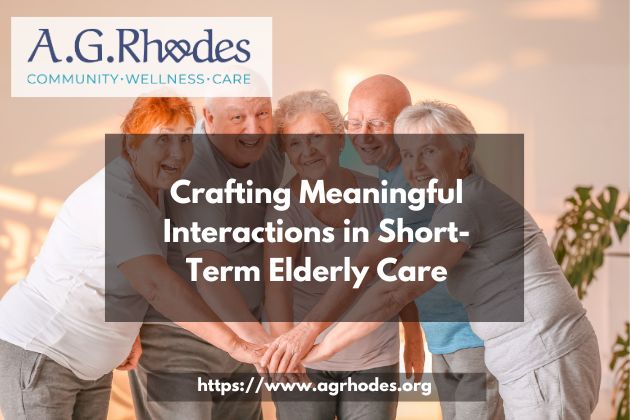
The Significance of Meaningful Interactions
Meaningful interactions play a crucial role in the lives of seniors in short-term care. Beyond meeting their basic needs, these interactions fulfill their desire for social connection, purpose, and belonging. Research has shown that regular engagement with caregivers, fellow residents, and visitors can have profound effects on seniors’ overall health and happiness. Here are some key benefits:
Emotional Support: Meaningful interactions provide emotional support, comfort, and reassurance to seniors during their stay in short-term care. Whether through conversation, shared activities, or simple gestures of kindness, these interactions alleviate feelings of loneliness and isolation.
Cognitive Stimulation: Engaging conversations, cognitive games, and reminiscence therapy stimulate seniors’ minds, helping maintain cognitive function and memory. By exercising their mental faculties, seniors can retain their cognitive abilities and enjoy a higher quality of life.
Physical Well-being: Meaningful interactions often involve physical activities, such as gentle exercises, walks, or recreational pursuits. These activities promote mobility, flexibility, and overall physical health, reducing the risk of complications and improving recovery outcomes.
Strategies for Fostering Meaningful Interactions
Creating a culture of trust and respect forms the foundation for meaningful interactions in short-term elderly care. Caregivers and staff members should prioritize empathy, active listening, and genuine interest in residents’ well-being. By establishing rapport and building positive relationships, seniors feel valued and supported, enhancing their overall experience.
Personalizing Care and Activities
Recognizing the individuality of each resident is essential for crafting meaningful interactions. Tailoring care plans and activities to residents’ interests, preferences, and abilities ensures that they feel seen and heard. Whether it’s organizing group outings, hosting themed events, or facilitating one-on-one conversations, personalized approaches foster engagement and satisfaction.
Creating Opportunities for Social Connection
Facilitating social interaction among residents promotes a sense of community and belonging. Group activities, such as games, crafts, or music sessions, encourage camaraderie and peer support. Additionally, organizing family visits, volunteer programs, and intergenerational activities enrich residents’ social lives and strengthen bonds with loved ones.
Conclusion
Meaningful interactions are the heart of short-term elderly care, enriching residents’ lives and fostering a sense of purpose and connection. By prioritizing empathy, personalization, and social engagement, caregivers and staff can create a nurturing environment where seniors feel valued, supported, and empowered. As we strive to enhance the quality of care for our aging population, meaningful interactions remain essential in promoting holistic well-being.

